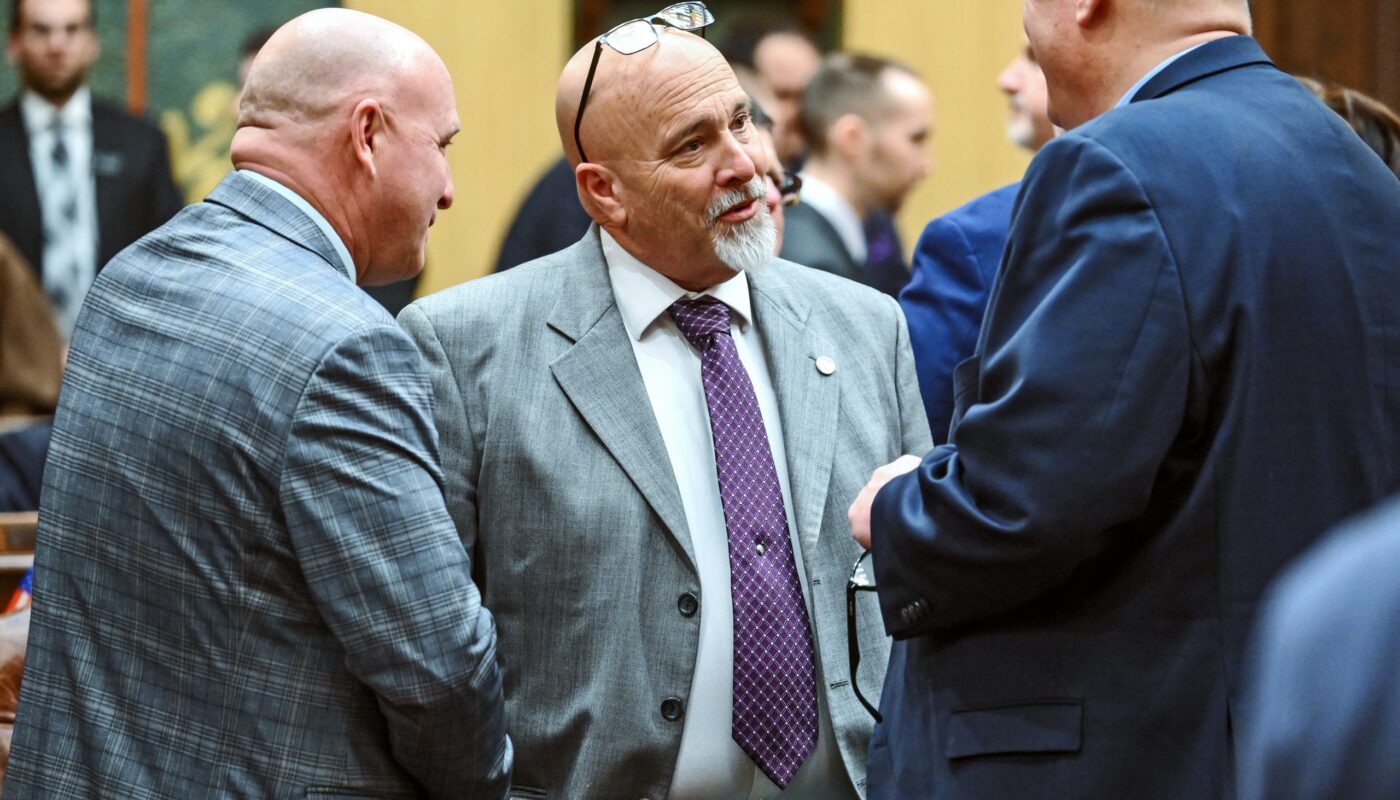Michigan lawmaker calls for salary suspension if the state budget isn’t passed on time, igniting debate over accountability and constitutional limits.
Representative Frisbie Calls for Pay Suspension Tied to Budget Delays
A press release from State Rep. Steve Frisbie, a Republican from Calhoun County’s 44th District, introduced a hardline accountability proposal: if the Michigan Legislature fails to pass a balanced budget by the July 1 statutory Michigan budget deadline, lawmakers should not receive a paycheck until the job is finished. The demand comes as Michigan enters a new school year without an approved budget, leaving local governments and school districts in limbo.
“Every year, Lansing politicians know the budget deadline is coming,” Frisbie said in a press statement. “But politicians continue to blow past deadlines and play politics with people’s livelihoods. If lawmakers can’t meet the most basic duty of government — passing a balanced budget by July 1 — then they shouldn’t collect a paycheck.”
The budget standoff, now stretching into late August, threatens funding for schools, road repairs, and public safety initiatives across Michigan.
Michigan Budget Deadline and Constitutional Constraints
Michigan’s fiscal year begins October 1, but under statute, lawmakers are expected to complete the school aid budget by July 1 to allow districts to prepare for the fall semester. This year, the Legislature missed that deadline, creating uncertainty for school boards and municipalities statewide.
However, legal scholars note that Frisbie’s “No Budget, No Pay” proposal faces constitutional hurdles. Under Article IV, Section 12 of the Michigan Constitution, legislator salaries are set by the State Officers Compensation Commission (SOCC) and cannot be changed mid-term. This means suspending pay as punishment for late budgets would likely require a constitutional amendment rather than statutory change.
The National Conference of State Legislatures (NCSL) has tracked similar efforts nationwide, noting that while states like California have enacted “No Budget, No Pay” laws, most jurisdictions face challenges enforcing them without voter-approved amendments.
Budget Breakdown: Political Gridlock at the Capitol
Frisbie pointed to late June negotiations as proof of dysfunction. He said House Republicans passed a record school funding plan, restoring safety and mental health funding, and supported a road repair package. Governor Gretchen Whitmer, a Democrat, also called for timely negotiations. But according to Frisbie, Senate Democrats adjourned before the deadline, rejecting road funding and trimming allocations to charter schools and politically connected nonprofits.
Six weeks later, the budget remains unsettled, with classrooms reopening under uncertainty. “When deadlines are blown, it isn’t politicians in the Capitol who feel the pain — it’s Michigan families, schools, and communities,” Frisbie said.
Democratic leaders counter that the House proposal favored corporate interests and undercut public schools, insisting further negotiations are needed before final passage.
Expert Commentary on Accountability and Public Trust
Dr. John Chamberlin, professor emeritus of public policy at the University of Michigan’s Ford School, said Frisbie’s proposal underscores a growing frustration with legislative delays. “Accountability is critical, but Michigan’s constitution makes it difficult to tie performance to pay,” Chamberlin told Michigan Advance earlier this summer. “Ultimately, it would take voter approval to impose something like ‘No Budget, No Pay’.
Public trust in state government has eroded after repeated late budgets in the past decade. For school administrators, the stakes are immediate. “It’s impossible to finalize staffing and programming without knowing how much money will be in the budget,” said Midland Public Schools officials in a recent statement.
Michigan Among States with Late Budgets
Michigan is not alone. According to NCSL, more than a dozen states have missed budget deadlines in recent years, but most provide stopgap funding to prevent shutdowns. While Michigan’s constitution requires a balanced budget, it does not automatically penalize lawmakers for failing to pass one on time.
Frisbie’s “No Budget, No Pay” plan positions Michigan alongside national debates about fiscal responsibility, but experts caution that legal reform, rather than rhetoric, will be required to implement it.
Sources
- Michigan Department of Education. “New School Year Set to Begin, Yet State Budget Remains in Limbo.” 19 Aug. 2025. michigan.gov
- Michigan Constitution. “Article IV and Article XI.” Michigan Legislature, 2025. PDF link
- National Conference of State Legislatures. “Late State Budgets.” 2020. ncsl.org
- Michigan Advance. “As Lawmakers Blow Past the State’s Budget Deadline, Duggan Makes a Pitch: No Budget, No Pay.” 10 July 2025. michiganadvance.com
- Our Midland. “Free School Lunches for Some Could End After Sept. 30.” 13 Aug. 2025. ourmidland.com
Read More Interesting Feature Stories From ThumbWind
- Michigan Feature News Stories – Unveiling the diverse and vibrant people, captivating places, and remarkable events that come together to make the Great Lake State unique.
- Strange Political News – A sarcastic take on official news from around the U.S., exploring the absurdities that often arise in the political landscape while providing a humorous perspective on current events and highlighting the quirks of politicians and policies.
- Michigan Hometown News – News and events from Michigan’s Upper Thumb region worth knowing, including local stories, impactful interviews, and updates on community happenings that shape the culture and lifestyle of the area.
Your Turn – Like This, or Hate it – We Want To Hear From You
Please offer an insightful and thoughtful comment. We review each response. Follow us to have other feature stories fill up your email box, or check us out at ThumbWind News.




